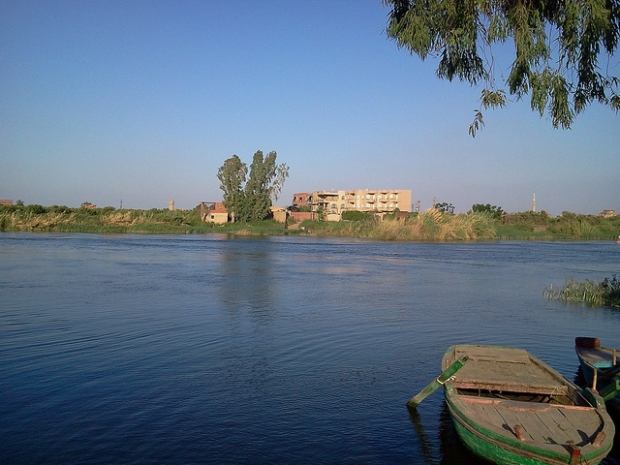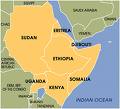Woldeyesus Ammar
Source:
Harrnet
The year just ending also happened to be a period in which a good
number of publications were released for the wider public with the yet
unfulfilled aim of making Eritrea and the situation of its people better
understood by others. Among them were the official submission to the
UN General Assembly and the Security Council the final conclusions of
the UN Commission of Inquiry on Eritrea along its earlier 483-page
comprehensive report, and follow up reports of the UN Monitoring Group
on Eritrea and Somalia. Another worthy addition to the long list of new
research papers and recent publications on Eritrea was Martin Plaut’s
Understanding Eritrea, a paperback published in October 2016 under the aptly chosen subtitle: ‘Inside Africa’s Most Repressive State’.
Martin Plaut and his new book on Eritrea
Earlier this year, journalist/researcher Martin Plaut mentioned to me
that he was writing a book on Eritrea, adding: “it can prove to be
difficult to write on a subject with so many experts.” For sure he was
kidding. Himself one of the veteran Eritrea observers from his BBC
days in the 1980s and till now; producer of authoritative publications
on African affairs and current Horn of Africa and Southern Africa
researcher for the Commonwealth Institute, Plaut has again come out
with a valuable reading material for all those interested to better
understand Eritrea and its unending woes. (And no wonder that he one of
those in the watch-list of the repressive regime in Asmara, whose paid
agents vainly try to silence him and his likes through ‘threats’ and
name calling.)
The book makes a sweeping coverage of history – not actually to tell
the country’s history, but to give a sufficient picture as to why
Eritrea’s problems linger and why they are what they are. Also through a
careful screening, he narrates and assesses events of critical
importance in Eritrea’s sad post-liberation decades. In addition to
squeezing out every bit of indispensable facts from the voluminous UN
Inquiry Commission and Monitoring Group reports – facts that might have
been overlooked even by our most avid readers in the opposition camp –
Plaut also surprises many a reader by putting more light on information
not fully known to the ‘experts’ on the subject. And all this in a small
space of not more than 250 pages!
Nowadays, if one mentions the name Eritrea, one can hardly avoid thinking of :
- The thorny relations Eritrea has with its neighbours, especially with Ethiopia;
- Eritrea’s dangerous fall to the worst form of dictatorship in Africa;
- The hemorrhage of its population;
- Their suffering in diaspora;
- The fragmentation of the supposed forces of change, and
- Prospects for the future.
The book does fairly adequately address these hot issues of
importance to Eritrea and all concerned about the plight of its people.
Plaut’s findings on the regime’s illicit economic activities and deals
are also of particular importance. He does not mention any production
of unwanted items by the regime after liberation although, according to
the book, the front that Isaias Afeworki led to victory is said to have
cultivated marijuana in areas under its control.
Closed and Secretive
In its early pages, the book prepares the reader to expect Eritreans
to be an outcome of a difficult history carrying traces of so many
rulers, and a complex identity of diverse groups speaking nine
languages, belonging to two major religions, living in different
environments and with co-ethnics separated by artificial colonial
boundaries. It also asserts that peoples of the region were culturally
inclined “to be closed and secretive” and that the left-wing ideologies
of the 20th century did contribute in hardening further these traits
in their elites. The author finds leaderships in the region to be
“veiled and obscure” – culturally and partly intentionally. Therefore,
even genuine differences could not be resolved through open discussions
because of the “cult of confidentiality” that existed in the liberation
movements.
The new Eritrean regime thus remained obscure by keeping everything
secret. Even Eritrea’s population was wanted to remain an unknown
figure. The last population census was made in 1931. According to Plaut,
the population estimates for Eritrea today range from 3.2m to 6.5m, and
the regime in Asmara can chose any figure when it wants to project
fictitious percentiles on growth in education, health services, the
economy etc.
Quarrels with Neighbours
The Eritrean regime’s numerous quarrels with neighbours, in
particular the one with Ethiopia, are given sufficient space and
insightful analysis. Regarding relations with Ethiopia, the author
considers the question of the border to have been of critical importance
although the Eritrean head of state, Isaias, at first gave it little
attention.
To his credit, Haile Mengerios, at that time regime representative in
Addis Ababa, is said to have raised the border question early in 1992
but Isaias “rebuffed” him. The book also mentions that even Yemane
Ghebreab (monkey), then a novice in official diplomacy, blamed Haile
Menkerios of being “obsessed with the border issue.”
One clear omission regarding the border issue is the book’s failure
to mention how much other Eritreans were very seriously concerned about
that problem starting in the latter part of the 1970s when disagreements
led to serious armed clashes between the Eritrean Liberation Front
(ELF) and the Tigrai People’s Liberation Front (TPLF).
The author observes serious absence of checks and balances and
unwillingness to compromise both in Eritrea and Ethiopia, and as such,
when relationship between two individuals break down, there remain “no
official structures to fall back upon.” He also hints at the ominous
probability – that no one can be sure that “full-scale war will not
resume” anytime in the future.
A Detrimental Email
There have been heated pro and con arguments about the failure of the
concerned states (especially Ethiopia) to accept the “final and
binding” decision of the arbitration Tribunal on the border problem
with its epicenter at Badme. After reading this book, I am inclined to
conclude that it was a misleading email by an OAU staff member and
observer at the Tribunal that hugely contributed in further
complicating the possible acceptance of the arbitration decision.
The Tribunal gave only coordinates on the map without mentioning
Badime and its location. When given the first copy of the decision, the
OAU observer at the Tribunal wrongly interpreted the coordinates and
emailed to his headquarters saying that Badime was given to Ethiopia.
The book informs that it was Martin Plaut of the BBC himself who was
the first to correctly read the map and to report that the OAU email
was based on wrong interpretation. Plaut’s interpretation was backed by
experts reached by BBC. At that time, Ethiopia was already celebrating
victory and its foreign minister said all what “a victor” is expected to
say. When the BBC report was broadcast, Ethiopia sent to London its
minister of Information to ask the BBC to withdraw its report, but to
no avail.
As we all know, it is now nearly 15 years since the boundary decision
was passed and the crucial matter left unaddressed by all concerned.
The ‘Clever, Manipulative’ Isaias
No present-day writer can spare Isaias the blame of being the topmost
culprit in independent Eritrea’s disastrous failure from becoming what
it was expected to be at the end of that long-stretched struggle. Martin
Plaut could not be an exception. He describes Isaias not only as
“clever and manipulative” but also as one whose style of rule is
“arbitrary, personal and ruthlessly repressive”. This “towering figure
who led his people to independence” was not ashamed to become the
“dictator “who now holds them in servitude”. Yet, to Plaut’s judgment,
“his colleagues in the EPLF leadership must [also] take their share for
the responsibility for the country’s predicament.”
Flight and its Consequences
After discussing the build up towards dictatorship and the economic
failures in most sectors that rendered the country inhabitable, the book
thoughtfully narrates the risks faced by those Eritreans, mostly young,
who take the fatal decision to say bye-bye to home. To be appreciated
most is Plaut’s ability to select and provide most essential facts that
can be kept at one’s finger-tips about what happened and in what
numbers to Eritrean victims of human traffickers in the Sinai, the
Sudan, the Libyan desert, the Mediterranean Sea and others parts of the
globe. The human traffickers included Eritrean top officials working
collaboration with Sudanese counterparts in the dirty business.
The Diaspora
Also given adequate coverage are diaspora Eritreans – both the old
and new caseloads, and how much they contributed to the coffers of the
regime as they did in liberation struggle days. However, the book
reassures that “the days of [Eritrean diaspora’s] unequivocal support
for the regime are over”. However, the long-arm’ of the regime is still
reaching many of the diaspora communities, including those 200,000
Eritrean-Americans in today’s Trumpland, who, by the way, were ordered
to vote for this supposed new buddy of the dictatorial clique in Asmara.
(And it is good to remember that Eritrea’s population was estimated at
little less than 200,000 – equal to those Eritreans presently in America
– when it was named ‘Italian colony of Eritrea’ in January 1890).
Naturally, the book discusses the problems in the diaspora opposition
and concludes that old rifts of the liberation struggle years are still
“standing on the way” of the much needed wider unity. In the
concluding parts of the book, Martin Plaut opines a number of possible
scenarios for change in Eritrea, the most optimistic of which is an
internal take-over by the army.
(This piece of writing was initially aimed to be a much shorter
thank you note to the author for making the effort to make Eritrea and
its current situation better understood by readers.)
Thank you, Martin Plaut. Shukren, Yekeniyelna!!
With warm greetings of the Holiday Season. source https://martinplaut.wordpress.com/2016/12/20/understanding-eritrea-a-review/
 Many Eyptians fear that the waters of the Nile will drop with the opening of the Ethiopia dam (AFP)
Many Eyptians fear that the waters of the Nile will drop with the opening of the Ethiopia dam (AFP) 
